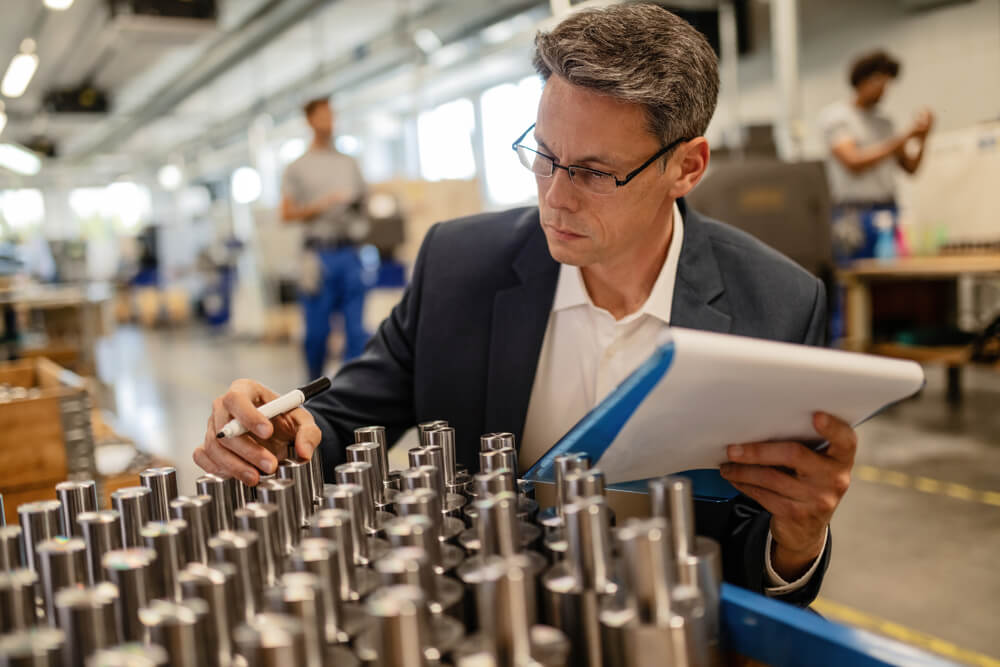Introduction
As the demand for higher production standards and efficiency grows, Industrial IoT (IIoT) has become a cornerstone of quality control in manufacturing. By embedding IoT sensors, utilizing predictive analytics, and enabling real-time data analysis, IIoT is changing the way industries monitor and enhance product quality. This transformation reduces waste, improves consistency, and increases operational efficiency. If you’re looking to optimize your manufacturing processes, check out our guide on industrial manufacturing solutions that integrate IIoT technologies.
In this post, we’ll explore how IIoT is revolutionizing quality control in manufacturing, the technologies involved, and the benefits for manufacturers.
What is Industrial IoT for Quality Control?
Industrial IoT (IIoT) refers to the integration of smart devices, sensors, and machines into the manufacturing process to collect real-time data. This data is then analyzed for insights that can enhance quality control processes. It includes monitoring equipment performance, detecting potential defects, and even predicting maintenance needs before they disrupt production.
Core Benefits of IIoT in Quality Control:
- Real-Time Monitoring: Track production quality instantly, allowing for immediate adjustments.
- Predictive Maintenance: Prevent costly breakdowns by forecasting potential equipment failures.
- Enhanced Accuracy: Minimize human error by automating quality control checks.
For a more detailed look at how IoT can solve critical pain points in manufacturing, be sure to read our article on how IoT in manufacturing solves pain points and drives efficiency.
How Do IoT Sensors Improve Quality Control?
IoT sensors are pivotal in IIoT systems. These sensors continuously collect data from machines, production lines, and products during manufacturing. For example, sensors can measure temperature, pressure, humidity, or vibration, which directly impacts product quality. To learn more about automating your production lines using IIoT technology, visit our post on automating production lines with Industrial IoT.
Advantages of IoT Sensors:
- Automation: Automated data collection ensures accurate, unbiased results.
- Speed: Data is gathered in real-time, enabling immediate action to address quality issues.
- Cost Savings: Early detection of anomalies prevents defects from reaching the end of the line, saving on costly reworks.
How Does Machine Learning and AI Play a Role?
The synergy between IIoT and Machine Learning (ML) enhances quality control by analyzing data to predict quality issues. ML algorithms can recognize patterns in data and identify quality problems before they occur.
How AI and ML Improve Quality Control:
- Defect Prediction: AI algorithms predict defects based on historical data.
- Anomaly Detection: Automatically identifies out-of-spec conditions in real-time, preventing defects from leaving the production line.
- Continuous Improvement: Machine learning helps IIoT systems get smarter over time, refining quality predictions.
Examples of IIoT in Manufacturing Quality Control
Here are a few real-world applications of IIoT in quality control:
1. Automated Defect Detection
AI-powered cameras equipped with IIoT sensors can automatically detect visual defects on products, ensuring only flawless items pass through.
2. Predictive Maintenance
IIoT sensors monitor machine health, predicting breakdowns before they happen, ensuring machines run smoothly without disrupting quality.
3. Energy Optimization
IIoT sensors track energy usage in production processes, reducing waste and improving the overall energy efficiency of operations.
What Are the Challenges of Implementing IIoT for Quality Control?
While the benefits are clear, there are a few implementation challenges manufacturers face with IIoT in quality control:
1. Integration with Existing Systems
Many factories use legacy systems that may not easily integrate with IIoT solutions. Upgrading systems for compatibility can be complex and costly.
2. Data Overload
IIoT generates vast amounts of data. Without the proper tools and systems in place, it can be challenging to extract actionable insights from this data.
3. Cybersecurity Risks
With more devices connected to the internet, the risk of cyberattacks increases. It’s critical to have strong security measures to protect sensitive manufacturing data.
What Does the Future Hold for IIoT and Quality Control?
The future of IIoT in quality control looks bright, with emerging technologies set to take IIoT to the next level:
5G-Enabled IIoT
With the rollout of 5G, IIoT devices will have faster, more reliable communication, enabling real-time quality control improvements across global operations.
Industry 4.0
As Industry 4.0 evolves, IIoT will be central to the development of smart factories. Machines, systems, and operators will become more interconnected, leading to fully automated quality control systems.
FAQs
1. What is the primary role of IIoT in quality control?
IIoT enhances quality control by using sensors and data analytics to provide real-time monitoring, predictive maintenance, and defect detection, improving product quality and operational efficiency.
2. How do IIoT sensors help in quality control?
IIoT sensors continuously monitor machine conditions, detect anomalies, and ensure quality standards are met without human intervention, increasing accuracy and reducing errors.
3. What are the security concerns with IIoT?
With more devices connected to the internet, IIoT systems face cybersecurity threats. Manufacturers must invest in robust security protocols to protect sensitive production data from unauthorized access.
Conclusion
Industrial IoT is undeniably transforming quality control in manufacturing. Through the use of IoT sensors, AI, machine learning, and predictive analytics, manufacturers can reduce defects, improve efficiency, and ensure higher product quality with less waste. Despite integration challenges, IIoT’s role in shaping the future of smart factories and Industry 4.0 is clear.
Ready to optimize your manufacturing quality control with IIoT? Explore our IIoT solutions and book a free demo to see how we can help streamline your production line for better quality and reduced waste.




